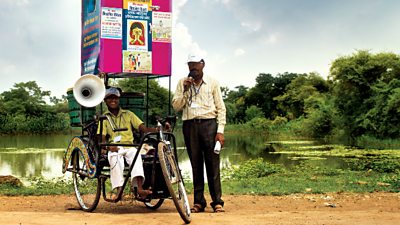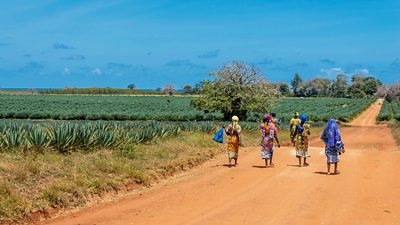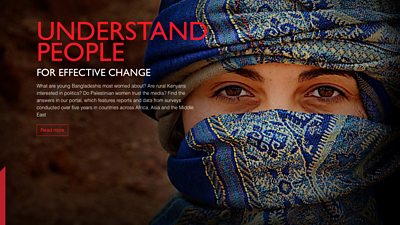Downloads
Published: July 2022
����ý Media Action conducted research to better understand how Tunisian social media users engage with the information they encounter on social media, what drives trust in and sharing of this information, what steps people take to identify false and misleading information, and what factors may make various people more vulnerable to mis and dis- information.
The spread of information that is false or misleading – whether by word-of-mouth, media, or otherwise – is an age-old phenomenon. Yet advances in technology, increasing access to both traditional and social media and changes in how people interact with information are propelling the spread of false information at a speed and scale not seen before. This has resulted in information ecosystems that are dangerously affected by ‘information disorder’ , including mis- and disinformation.
In recent years, Tunisia, like other North African countries, has experienced considerable social unrest. This has many causes, including high levels of unemployment, poverty, and political instability. In July 2022 a referendum on a new Constitution was passed which gave significantly more power to the President. Parliamentary elections are planned for December 2022.
Globally, political events such as elections are often accompanied by widespread mis- and disinformation, as competing factions via for power and influence amongst the political turmoil. And like many other countries, Tunisia has also witnessed a proliferation of false and misleading information about the COVID-19 pandemic (e.g., on its origin, symptoms, how it transmits, what can help to prevent its spread, and the safety and efficacy of vaccines) as people struggle to know who and what to trust in what the WHO has labelled an ‘infodemic’.
Research methodology
This study took place in March and April 2022. The research consisted of a desk review of relevant literature, 36 in-depth interviews, and a nationally representative telephone survey with 2000 men and women aged 18 and above. The qualitative research included exploration of how participants engaged with several examples of false and misleading information in relation to the COVID-19 pandemic.
Key findings
The prevalence of false and/or misleading information on social media in Tunisia is evident, with 96% of survey respondents reporting having encountered it at some point and 39% believing they encounter it daily. Tunisians are highly concerned about the level of false and misleading information on social media (70%), and about the harmful effect it may have on the forthcoming election (76%).
However, many respondents do not feel personally susceptible to it. Respondents widely reported confidence in their ability to assess and identify the accuracy of information they see and share online; 76% of Tunisians said they felt confident in their ability to identify false or misleading information (54% somewhat, 22% very confident).
Despite this, close to half (45%) admitted to previously sharing content online that later turned out to be false or inaccurate, and only 30% said they felt confident in others’ ability to identify false or misleading information.
I decided to share it in order to make other people happy. Nowadays we all need to share positivity and happiness”
Sharing information on social media is largely driven by a sense of altruism and socialisation (e.g., wanting to ‘join in’ with an online community), rather than self-promotion. And respondents largely reported sharing posts that made them happy or amused them while avoiding sharing posts that disgusted them or made them fearful.
Whilst most respondents (71%) reported they value accurate, trustworthy information, a smaller proportion (51%) felt they could access accurate information in practice.
Findings also indicate that perceptions of trust and credibility are often grounded in the way in which news and information is delivered or packaged. Content using scientific terms, delivered by an apparent expert speaking with authority, and made with high production values, is generally perceived as trustworthy.
Alongside this, there is also a widely held belief in the ‘power of shares’ – i.e., that the more widely a piece of information is shared online, the more people are willing to believe it.
Key implications
The research has implications for future work on information disorder in Tunisia, including that:
- As the country prepares for elections in December 2022, there is a need for major investment in independent, accurate and trusted information sources as a counterweight to the immense flow of mis- and disinformation.
- Social media users need targeted signposting to direct them towards reputable sources of information on significant and sensitive topics.
- They also need sensitive support to help recognise their vulnerabilities, and better digital and media literacy skills and confidence to help identify false and misleading information.
- Social media users say they are primarily driven to share information which they feel can help others. This positive motivation could be tapped when designing media literacy interventions, for example by emphasising the importance of only sharing information that is accurate if one is trying to be helpful or kind to others.
- Social media users should also be encouraged to pause and think before they share information, with additional encouragement to consider whether the information they plan to share is accurate, kind and necessary.
The full data from this research also provides insights on the different attitudes and practices of various demographic groups in Tunisia. The data can therefore assist with the design of targeted digital and media literacy interventions.
For further information, please contact ����ý Media Action’s North Africa Country Director: colin.spurway@tn.bbcmediaaction.org.
Latest Tunisia stories
More stories from TunisiaOur research library
-

Long reads
Read our comprehensive research reports of the evidence behind our work. All of our publications are freely available to download. -

Short reads
At a glance, explore key findings and evidence behind our work. All of our publications are freely available to download. -

By country
Explore our findings and analysis country by country. All of our publications are freely available to download. -
 What are young Bangladeshi's most worried about? Are rural Kenyans interested in politics? Do Palestinian women trust the media? Find the answers in our data portal (last updated 2020).
What are young Bangladeshi's most worried about? Are rural Kenyans interested in politics? Do Palestinian women trust the media? Find the answers in our data portal (last updated 2020).
